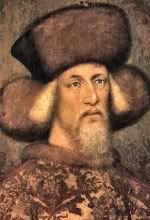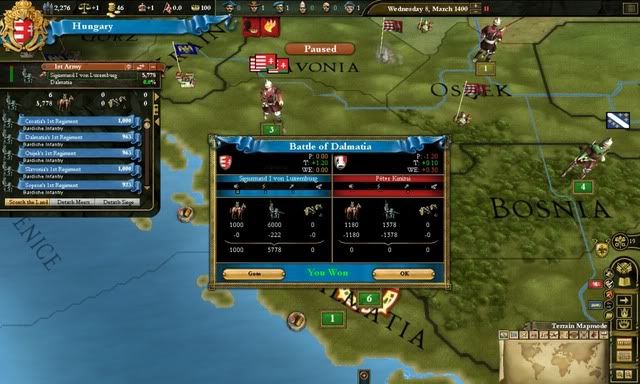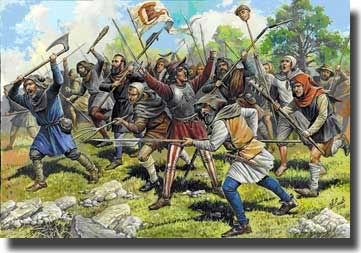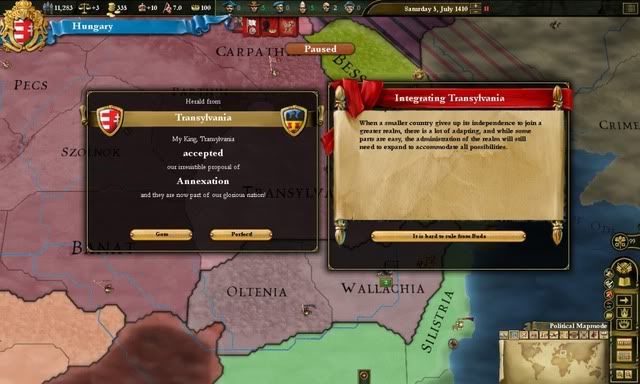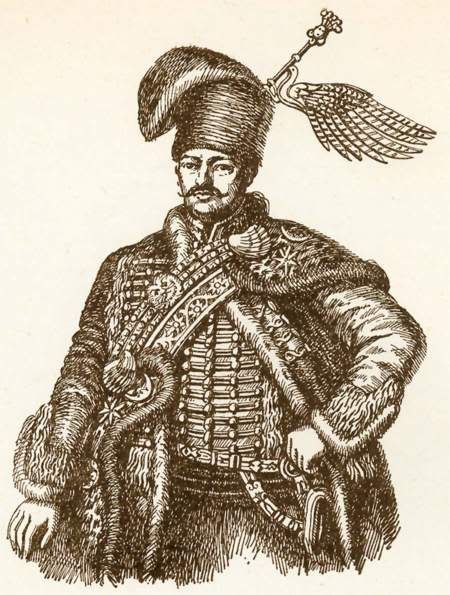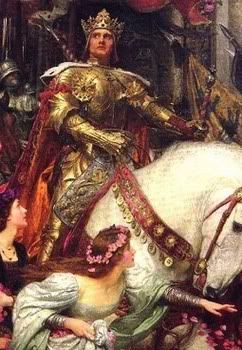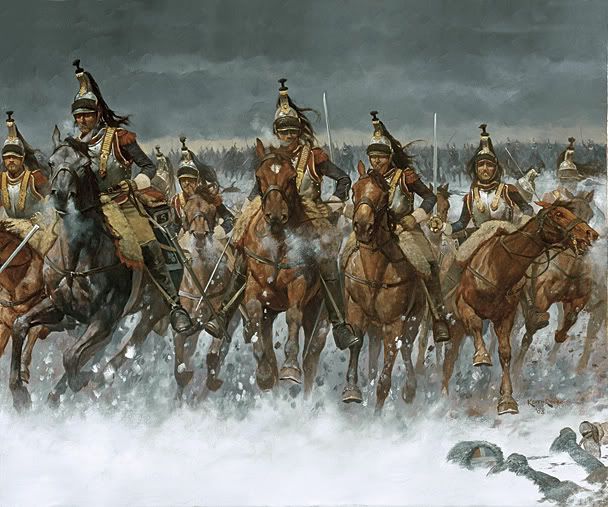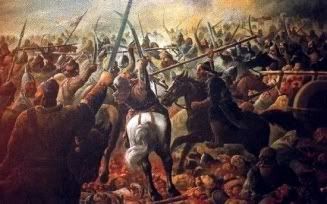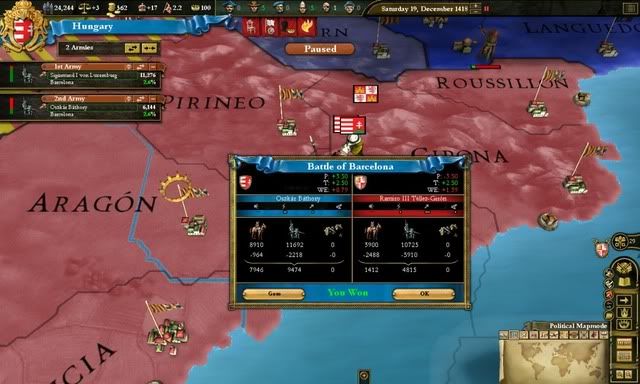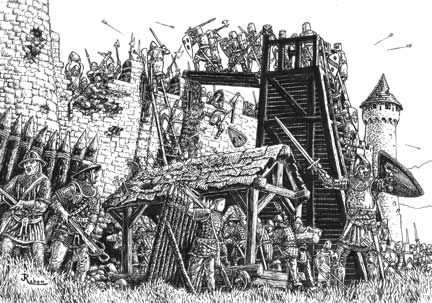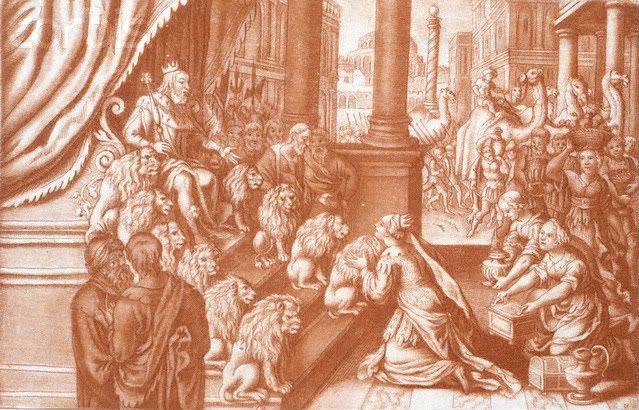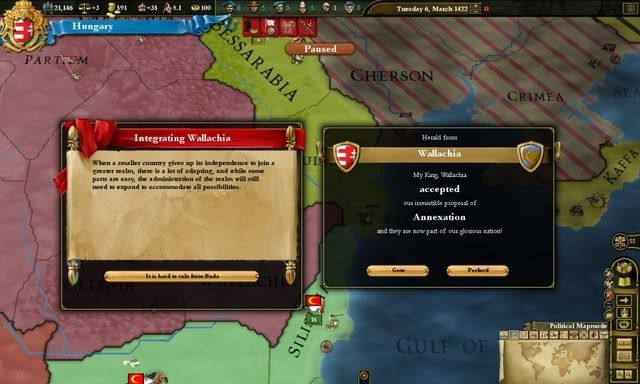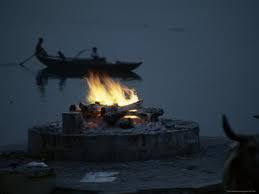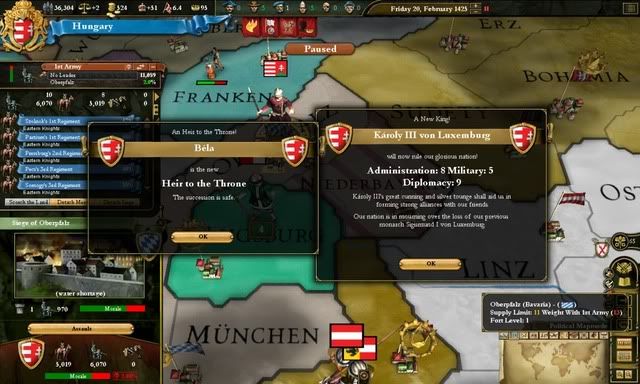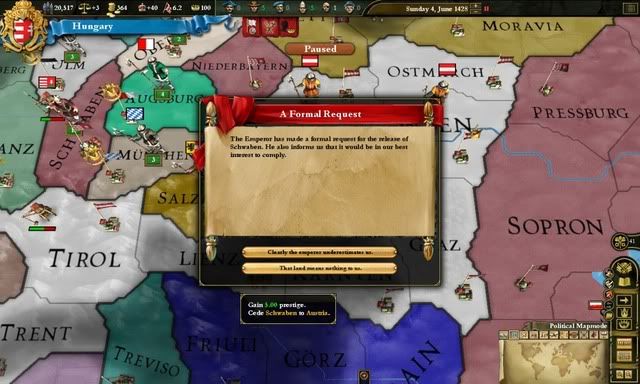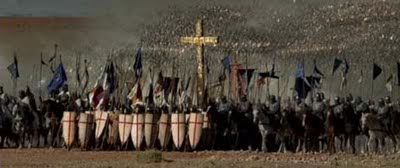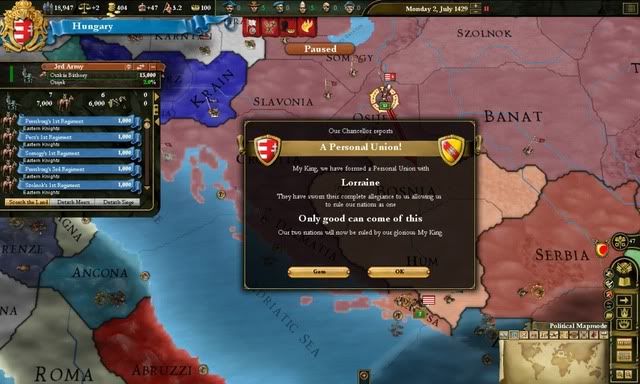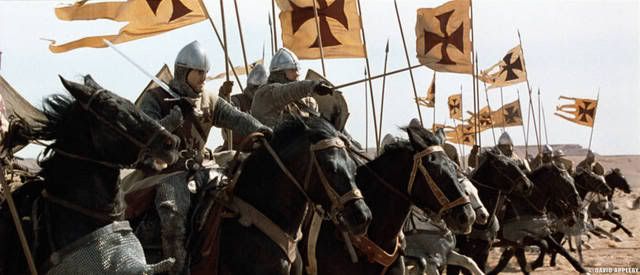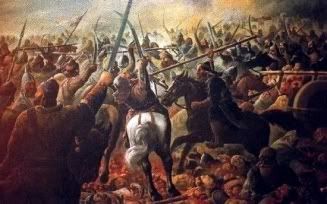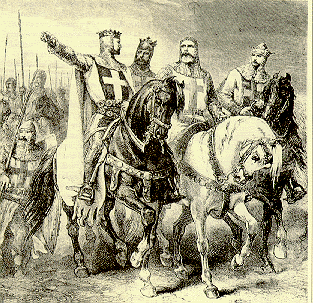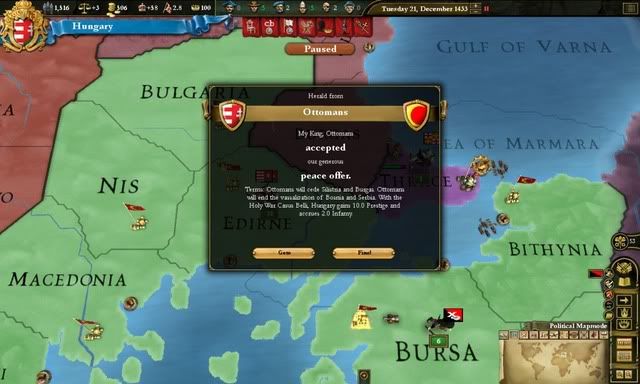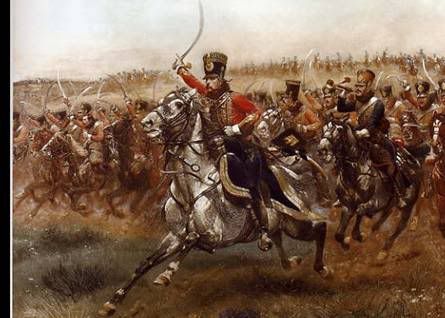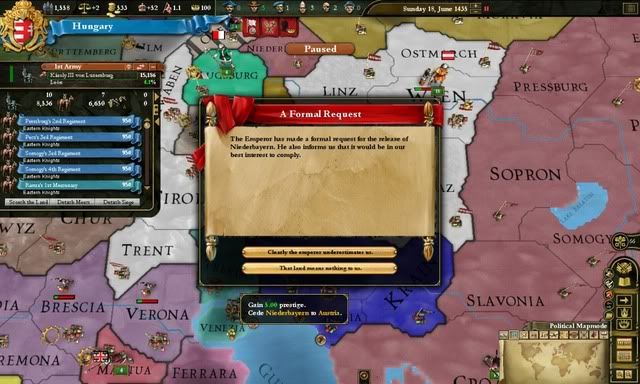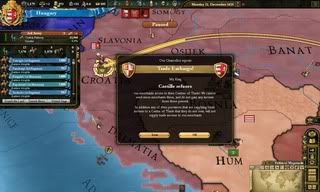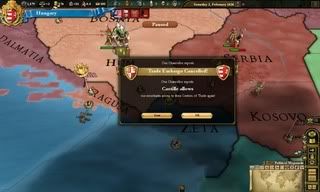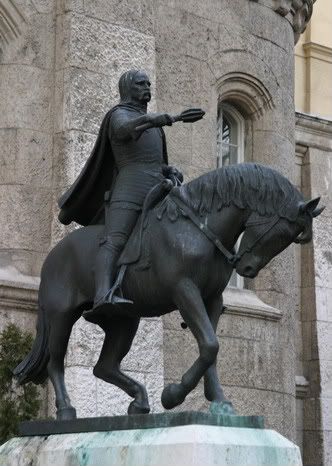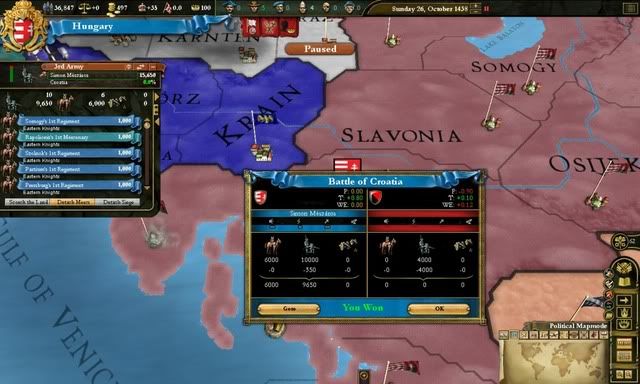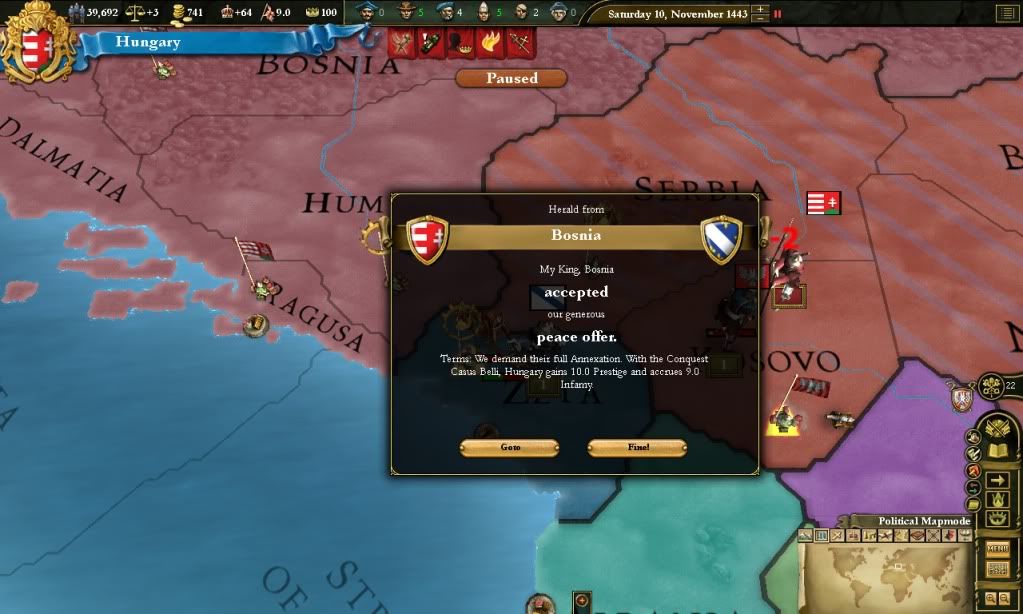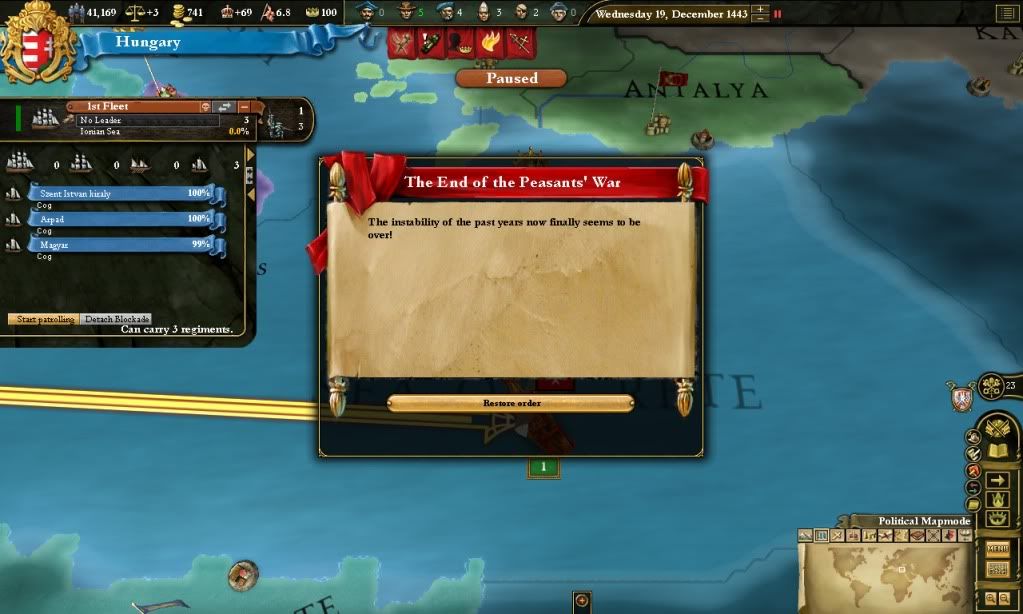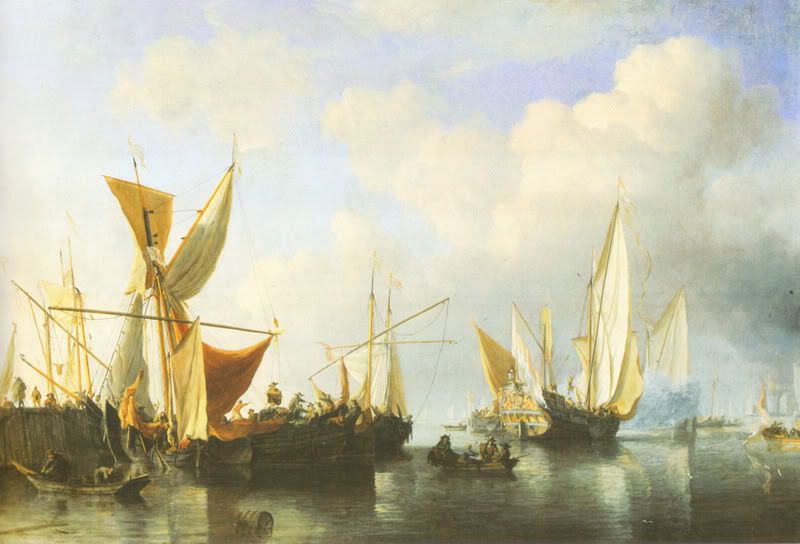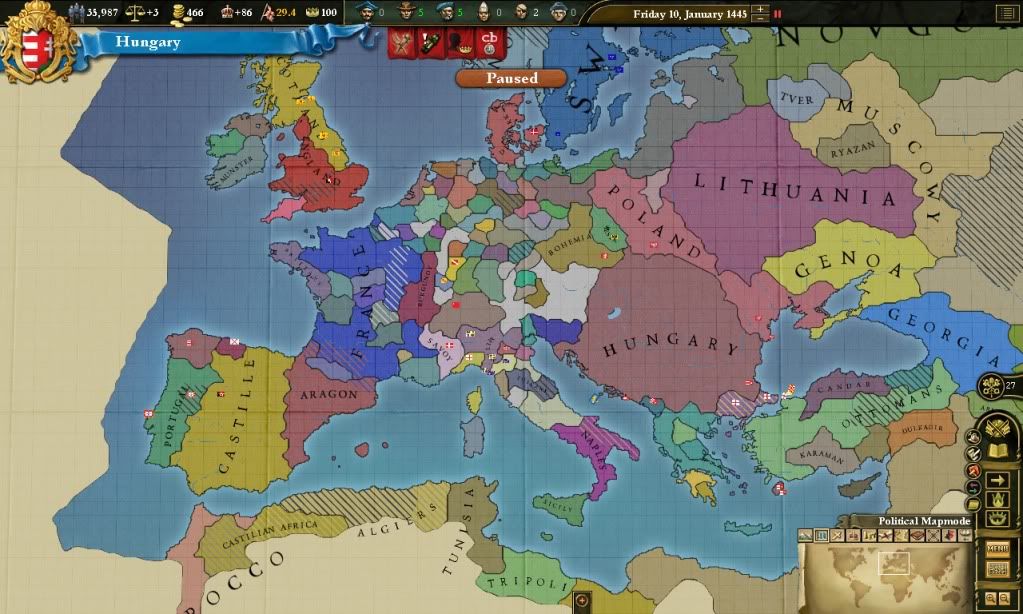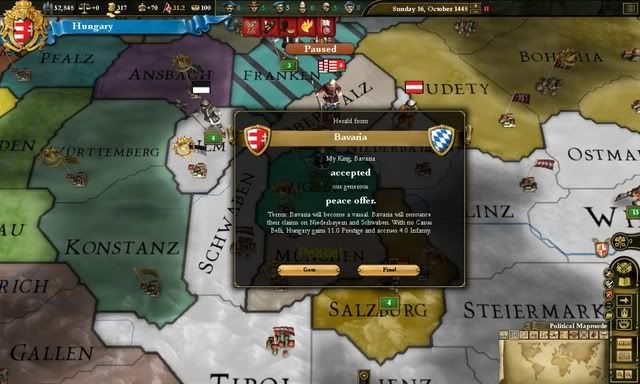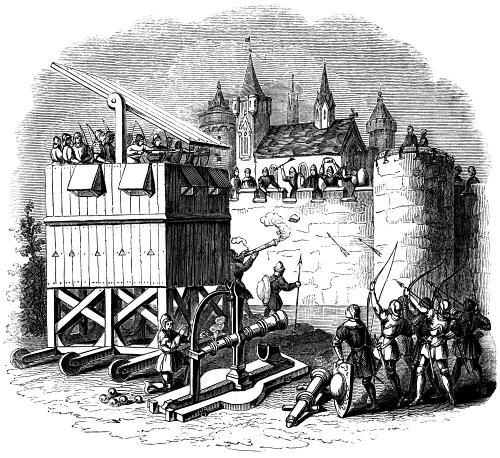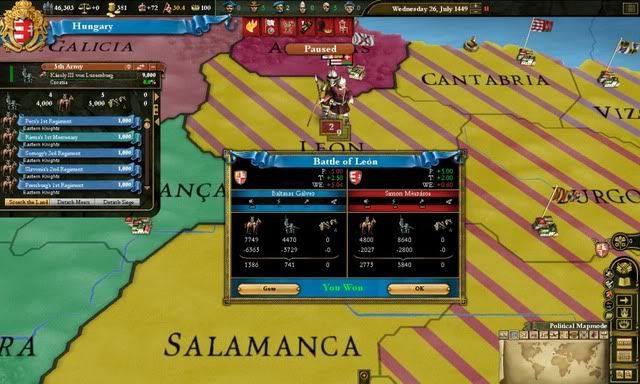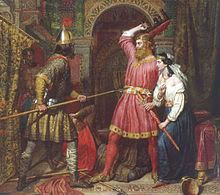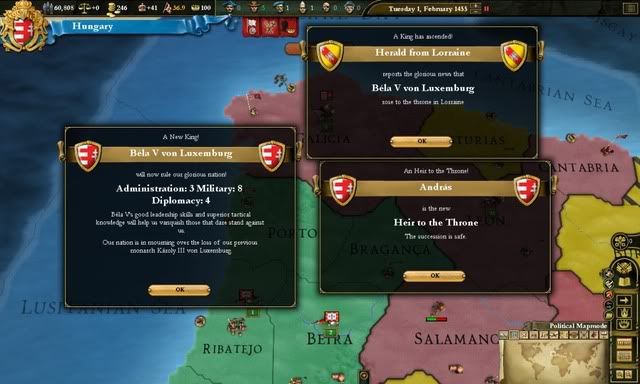Chapter 3: Iberian War
The two recent wars which had consumed Sigismund's time had finally come to an end. But the people and the country had suffered from it. Especially from the war with Venice which had gained them nothing; not land, wealth or prestige. Only a promise that they may not keep. Worried that his country would collapse and go bankrupt Sigismund decreased the size of the military and returned his attention on trade. Among his new trading partners were Aragon, Scotland, and Provence.
As his country slowly rebuilt itself over the years Sigismund slowly began to rebuilding his army to a respectable force of 18,000 which was a full five thousand more men. This recent boost in troops came at just the right moment as a diplomat arrived on the 15th of February 1418 from his most profitable trading partner Aragon. It appeared their neighbor Castille had declared war on them in an attempt to unify the Iberian Peninsula. Deciding to come to his friends aid Sigismund ordered the immediate march towards Aragon's land. This would be a dangerous trip for many reasons though his council pointed out. First, the army would have to march across a thousand miles of land and through many mountains. Second, there would be no troops left behind to protect the nation from rebellion or should one of their neighbors decide to attack them. Lastly, the Castillian army and treasury was far larger then their own at the moment. He was only able to field a meager force of 18,000 men while they had near 50,000 troops.
These facts did not change Sigismund's mind though. He would see his allies protected no matter what. So after a few days of preperation he left Pecs and began the long march west. He took with him 11,000 of his veteran troops while General Oszkar Bathroy would have to wait until the remaining 7,000 men from across the countryside arrived and they could begin their journey as well.
The trip west was not as bad as he thought it would be as he had many friends along the way. Among them were King Gian Galeazzo I Visconti of Milan who finally got to thank him personally for saving his kingdom from the Genoians and King Charles III Pene de la Barde of Provence who after some convincing said he would send additional troops to assist Aragon. These two side tracks gave General Bathory and his force enough time to not only catch up but pass the King's army.
On October 6th General Bathroy's army finally reached the Iberian Peninsula. Holding his position for a little over a week he sent out scouts to learn what the situation was. It appeared that Castille had very little success against the Aragon army as most of their troops were stationed in Africa waging war with Algiers. The only territory they were even besieging was Barcelona with a force of 15,000 men under the Castillian King Ramiro III Tellez-Giron. Sadly though Aragon's army was already decimated and so it would be up to him to fend him off until his King arrived.
Wishing to prove himself General Bathory ordered his men to begin marching towards Barcelona on the 17th of October. This trip took fourteen days before he saw an army more then twice his size marching towards him. Setting up his battle lines Bathory worried if this in fact was the best idea. His men were not battle hardened veterans, they were outnumbered and they had just marched close to a thousand miles to get here. This could turn into a blood bat real quick. It became more obvious that this would be a fierce battle when the Castillian armies cavalry did not slow. Instead these men kept pushing forward towards him.
Giving quick orders to his men the two sides fought for quite some time until finally the enemies cavalry was seen rushing from the field. Taking a quick account of the sun and the enemies 11,000 infantry he realized that the clash between them was actually quite short only an hour if that. It was also obvious that he had won that engagement hands down as over a thousand of his enemy were dead and they had only lost about a hundred. Greatly pleased with himself he was about to ordered an attack against the Castillians when he thought better of it. He was still greatly outnumbered.
So for the next month and a half the two only fought minor skirmishes between them. Until the 19th of December when General Bathory thought it was time to strike the enemy. Already they had killed close to four thousand men and he had only suffered around 1500 losses on his side. As the sun was rising the Castillian forces woke to see that the Hungarian army was marching towards them. In no time at all the remaining 11,000 angry Castillian's came charging at them. After close to an hour of fighting the entire Hungarian force was surrounded by the numerically larger Castillian forces.
They kept fighting though and for every one of them that died they would take three to four of the Castillians with him. As the battle was beginning to wind down and they were slowly breaking apart another force arrived on the field. The King had finally arrived with his army of 11,000 men along with the extra thousand that the King of Provence had given him. Seeing their King arrive with reinforcements the Hungarians returned to the attack. By nightfall the last of the Castillian army was fleeing north towards Pirineo.
At the end of the battle it became apparent that Bathory had won a Decisive victory at the Battle of Barcelona. He had lost only a little more then 3,000 men between himself and the King's forces while King Ramiro III only had 6,000 men left. Wishing to give his General a chance to rest King Sigismund ordered him to move south to begin the siege of southern Castille while he followed in pursuit of King Ramiro III. The next morning the two armies parted ways again and within a week King Ramiro's army was completely wiped out.
From here he moved on to Castilla La Vieja the capital of Castille's lands in hopes of crippling their government. Thinking they would have an easy victory now that the Castillian's had no army on the Iberian Peninsula, King Sigismund was shocked to learn that a force of 14,000 Castillian troops were marching on him after close to a year laying siege to the city.
At the head of this army was King Ramiro III who had fled to Africa to bring back one of his armies that had recently been successful against the Algierian army. The battle for the siege of Castilla La Vieja was going well for King Sigismund who was a far better commander then King Ramiro but in the end the Hungarians had to flee back to Leon when the Castillians were able to destroy all their food. As the Hungarians fled, King Sigismund sent a messenger to get General Bathory to march north to aid them against the Castillians.
On the 6th of January 1420, Oszkar Bathory arrived at Leon where the two Kings faced off against one another. As the Castillians did not see him and his men arrive, he made use of that and struck them from behind. In the ensuing battle King Ramiro and every last one of his soldiers were killed or captured. With the King's death this left the country of Castille under the guidance of King Ramiro's son Alfonso who was only a year old.
Worried that the Castillian nobles would be able to mount a defense against him King Sigismund and General Bathory marched back to Castilla La Vieja and by the 5th of May the city was in their control along with the baby King, the late King's wife and most of the nobles that formed the Regency council. Holding these people hostage King Sigismund stayed in their capital while General Bathory marched north and within a year had captured Galacia and Asturias. As time went on and as he missed being home King Sigismund finally gave them Castillian people a chance to end the war. He would keep the areas of Galacia and Asturias as his own to ensure that they would not move against his ally again as long as the queen would kneel before him and swear they would not attack them again. So on the 2nd of October 1421 the Dowager Queen was brought before King Sigismund as he sat on the Castillian throne and she swore peace between the two countries.
With peace now returned to the Iberian peninsula King Sigismund marched back to Hungary with his force of 12,000 men. General Bathory agreed to stay behind in Galacia to ensure their loyalty and to keep an eye on the Castillians who were scared of him.
Arriving home on the 6th of March 1422 King Sigismund was greeted by a messenger from Wallachia. This man had with him a scroll from the King and a package as well. After quickly reading the scroll he was shocked by what it said. After opening the box he was even more suprised when he saw that inside was the crown of Wallachia. The King had abdicated his throne to King Sigismund.


